- Home
- Philip Pullman
The Amber Spyglass hdm-3 Page 27
The Amber Spyglass hdm-3 Read online
Page 27
"Try, then," said No-Name.
And even in her sickness and pain, Lyra felt that she’d just been dealt the ace of trumps.
"Oh, be careful," whispered Salmakia, but Lyra’s mind was already racing ahead through the story she’d told the night before, shaping and cutting and improving and adding: parents dead; family treasure; shipwreck; escape…
"Well," she said, settling into her storytelling frame of mind, "it began when I was a baby, really. My father and mother were the Duke and Duchess of Abingdon, you see, and they were as rich as anything. My father was one of the king’s advisers, and the king himself used to come and stay, oh, all the time. They’d go hunting in our forest. The house there, where I was born, it was the biggest house in the whole south of England. It was called—"
Without even a cry of warning, the harpy launched herself at Lyra, claws outstretched. Lyra just had time to duck, but still one of the claws caught her scalp and tore out a clump of hair.
"Liar! Liar!" the harpy was screaming. "Liar!"
She flew around again, aiming directly for Lyra’s face; but Will took out the knife and threw himself in the way. No-Name swerved out of reach just in time, and Will hustled Lyra over toward the door, because she was numb with shock and half-blinded by the blood running down her face. Where the Gallivespians were, Will had no idea, but the harpy was flying at them again and screaming and screaming in rage and hatred:
"Liar! Liar! Liar!"
And it sounded as if her voice were coming from everywhere, and the word echoed back from the great wall in the fog, muffled and changed, so that she seemed to be screaming Lyra’s name, so that Lyra and liar were one and the same thing.
Will had the girl pressed against his chest, with his shoulder curved over to protect her, and he felt her shaking and sobbing against him; but then he thrust the knife into the rotten wood of the door and cut out the lock with a quick slash of the blade.
Then he and Lyra, with the spies beside them on their darting dragonflies, tumbled through into the realm of the ghosts as the harpy’s cry was doubled and redoubled by others on the foggy shore behind them.
Chapter 22. The Whisperers
The first thing Will did was to make Lyra sit down, and then he took out the little pot of bloodmoss ointment and looked at the wound on her head. It was bleeding freely, as scalp wounds do, but it wasn’t deep. He tore a strip off the edge of his shirt and mopped it clean, and spread some of the ointment over the gash, trying not to think of the filthy state of the claw that made it.
Lyra’s eyes were glazed, and she was ash-pale.
"Lyra! Lyra!" he said, and shook her gently. "Come on now, we’ve got to move."
She gave a shudder and took a long, shaky breath, and her eyes focused on him, full of a wild despair.
"Will—I can’t do it anymore—I can’t do it! I can’t tell lies! I thought it was so easy—but it didn’t work—it’s all I can do, and it doesn’t work!"
"It’s not all you can do. You can read the alethiometer, can’t you? Come on, let’s see where we are. Let’s look for Roger."
He helped her up, and for the first time they looked around at the land where the ghosts were.
They found themselves on a great plain that extended far ahead into the mist. The light by which they saw was a dull self-luminescence that seemed to exist everywhere equally, so that there were no true shadows and no true light, and everything was the same dingy color.
Standing on the floor of this huge space were adults and children—ghost people—so many that Lyra couldn’t guess their number. At least, most of them were standing, though some were sitting and some lying down listless or asleep. No one was moving about, or running or playing, though many of them turned to look at these new arrivals, with a fearful curiosity in their wide eyes.
"Ghosts," she whispered. "This is where they all are, everyone that’s ever died…"
No doubt it was because she didn’t have Pantalaimon anymore, but she clung close to Will’s arm, and he was glad she did. The Gallivespians had flown ahead, and he could see their bright little forms darting and skimming over the heads of the ghosts, who looked up and followed them with wonder; but the silence was immense and oppressive, and the gray light filled him with fear, and Lyra’s warm presence beside him was the only thing that felt like life.
Behind them, outside the wall, the screams of the harpies were still echoing up and down the shore. Some of the ghost people were looking up apprehensively, but more of them were staring at Will and Lyra, and then they began to crowd forward. Lyra shrank back; she didn’t have the strength just yet to face them as she would have liked to do, and it was Will who had to speak first.
"Do you speak our language?" he said. "Can you speak at all?"
Shivering and frightened and full of pain as he and Lyra were, they had more authority than the whole mass of the dead put together. These poor ghosts had little power of their own, and hearing Will’s voice, the first clear voice that had sounded there in all the memory of the dead, many of them came forward, eager to respond.
But they could only whisper. A faint, pale sound, no more than a soft breath, was all they could utter. And as they thrust forward, jostling and desperate, the Gallivespians flew down and darted to and from in front of them, to prevent them from crowding too close. The ghost children looked up with a passionate longing, and Lyra knew at once why: they thought the dragonflies were daemons; they were wishing with all their hearts that they could hold their own daemons again.
"Oh, they en’t daemons," Lyra burst out compassionately; "and if my own daemon was here, you could all stroke him and touch him, I promise—"
And she held out her hands to the children. The adult ghosts hung back, listless or fearful, but the children all came thronging forward. They had as much substance as fog, poor things, and Lyra’s hands passed through and through them, as did Will’s. They crammed forward, light and lifeless, to warm themselves at the flowing blood and the strong-beating hearts of the two travelers, and both Will and Lyra felt a succession of cold, delicate brushing sensations as the ghosts passed through their bodies, warming themselves on the way. The two living children felt that little by little they were becoming dead, too; they hadn’t got an infinite amount of life and warmth to give, and they were so cold already, and the endless crowds pressing forward looked as if they were never going to stop.
Finally Lyra had to plead with them to hold back.
She held up her hands and said, "Please—we wish we could touch you all, but we came down here to look for someone, and I need you to tell me where he is and how to find him. Oh, Will," she said, leaning her head to his, "I wish I knew what to do!"
The ghosts were fascinated by the blood on Lyra’s forehead. It glowed as brightly as a holly berry in the dimness, and several of them had brushed through it, longing for the contact with something so vibrantly alive. One ghost girl, who when she was alive must have been about nine or ten, reached up shyly to try and touch it, and then shrank back in fear; but Lyra said, "Don’t be afraid—we en’t come here to hurt you—speak to us, if you can!"
The ghost girl spoke, but in her thin, pale voice, it was only a whisper.
"Did the harpies do that? Did they try and hurt you?"
"Yeah," said Lyra, "but if that’s all they can do, I en’t worried about them."
"Oh, it isn’t—oh, they do worse—"
"What? What do they do?"
But they were reluctant to tell her. They shook their heads and kept silent, until one boy said, "It en’t so bad for them that’s been here hundreds of years, because you get tired after all that time, they can’t ‘fraid you up so much—"
"It’s the new ones that they like talking to most," said the first girl. "It’s just… Oh, it’s just hateful. They… I can’t tell you."
Their voices were no louder than dry leaves falling. And it was only the children who spoke; the adults all seemed sunk in a lethargy so ancient that they might never move or sp
eak again.
"Listen," said Lyra, "please listen. We came here, me and my friends, because we got to find a boy called Roger. He en’t been here long, just a few weeks, so he won’t know very many people, but if you know where he is…"
But even as she spoke, she knew that they could stay here till they grew old, searching everywhere and looking at every face, and still they might never see more than a tiny fraction of the dead. She felt despair sit on her shoulders, as heavy as if the harpy herself were perching there.
However, she clenched her teeth and tried to hold her chin high. We got here, she thought, that’s part of it anyway.
The first ghost girl was saying something in that lost little whisper.
"Why do we want to find him?" said Will. "Well, Lyra wants to speak to him. But there’s someone I want to find as well. I want to find my father, John Parry. He’s here, too, somewhere, and I want to speak to him before I go back to the world. So please ask, if you can, ask for Roger and for John Parry to come and speak to Lyra and to Will. Ask them—"
But suddenly the ghosts all turned and fled, even the grownups, like dry leaves scattered by a sudden gust of wind. In a moment the space around the children was empty, and then they heard why. Screams, cries, shrieks came from the air above, and then the harpies were on them, with gusts of rotten stink, battering wings, and those raucous screams, jeering, mocking, cackling, deriding.
Lyra shrank to the ground at once, covering her ears, and Will, knife in hand, crouched over her. He could see Tialys and Salmakia skimming toward them, but they were some way off yet, and he had a moment or two to watch the harpies as they wheeled and dived. He saw their human faces snap at the air, as if they were eating insects, and he heard the words they were shouting—scoffing words, filthy words, all about his mother, words that shook his heart; but part of his mind was quite cold and separate, thinking, calculating, observing. None of them wanted to come anywhere near the knife.
To see what would happen, he stood up. One of them—it might have been No-Name herself—had to swerve heavily out of the way, because she’d been diving low, intending to skim just over his head. Her heavy wings beat clumsily, and she only just made the turn. He could have reached out and slashed off her head with the knife.
By this time the Gallivespians had arrived, and the two of them were about to attack, but Will called: "Tialys! Come here! Salmakia, come to my hand!"
They landed on his shoulders, and he said, "Watch. See what they do. They only come and scream. I think it was a mistake when she hit Lyra. I don’t think they want to touch us at all. We can ignore them."
Lyra looked up, wide-eyed. The creatures flew around Will’s head, sometimes only a foot or so away, but they always swerved aside or upward at the last moment. He could sense the two spies eager for battle, and the dragonflies’ wings were quivering with desire to dart through the air with their deadly riders, but they held themselves back: they could see he was right.
And it had an effect on the ghosts, too: seeing Will standing unafraid and unharmed, they began to drift back toward the travelers. They watched the harpies cautiously, but for all that, the lure of the warm flesh and blood, those strong heartbeats, was too much to resist.
Lyra stood up to join Will. Her wound had opened again, and fresh blood was trickling down her cheek, but she wiped it aside.
"Will," she said, "I’m so glad we came down here together…"
He heard a tone in her voice and he saw an expression on her face that he knew and liked more than anything he’d ever known: it showed she was thinking of something daring, but she wasn’t ready to speak of it yet.
He nodded, to show he’d understood.
The ghost girl said, "This way—come with us—we’ll find them!"
And both of them felt the strangest sensation, as if little ghost hands were reaching inside and tugging at their ribs to make them follow.
So they set off across the floor of that great desolate plain, and the harpies wheeled higher and higher overhead, screaming and screaming. But they kept their distance, and the Gallivespians flew above, keeping watch.
As they walked along, the ghosts talked to them.
"Excuse me," said one ghost girl, "but where’s your daemons? Excuse me for asking. But…"
Lyra was conscious every single second of her dear, abandoned Pantalaimon. She couldn’t speak easily, so Will answered instead.
"We left our daemons outside," he said, "where it’s safe for them. We’ll collect them later. Did you have a daemon?"
"Yes," said the ghost, "his name was Sandling… oh, I loved him…"
"And had he settled?" said Lyra.
"No, not yet. He used to think he’d be a bird, and I hoped he wouldn’t, because I liked him all furry in bed at night. But he was a bird more and more. What’s your daemon called?"
Lyra told her, and the ghosts pressed forward eagerly again. They all wanted to talk about their daemons, every one.
"Mine was called Matapan—"
"We used to play hide-and-seek, she’d change like a chameleon and I couldn’t see her at all, she was ever so good—"
"Once I hurt my eye and I couldn’t see and he guided me all the way home—"
"He never wanted to settle, but I wanted to grow up, and we used to argue—"
"She used to curl up in my hand and go to sleep—"
"Are they still there, somewhere else? Will we see them again?"
"No. When you die, your daemon just goes out like a candle flame. I seen it happen. I never saw my Castor, though—I never said good-bye—"
"They en’t nowhere! They must be somewhere! My daemon’s still there somewhere, I know he is!"
The jostling ghosts were animated and eager, their eyes shining and their cheeks warm, as if they were borrowing life from the travelers.
Will said, "Is there anyone here from my world, where we don’t have daemons?"
A thin ghost boy of his own age nodded, and Will turned to him.
"Oh yes," came the answer. "We didn’t understand what daemons were, but we knew what it felt like to be without them. There’s people here from all kinds of worlds."
"I knew my death," said one girl, "I knew him all the while I was growing up. When I heard them talk about daemons, I thought they meant something like our deaths. I miss him now. I won’t never see him again. I’m over and done with, that’s the last thing he said to me, and then he went forever. When he was with me, I always knew there was someone I could trust, someone who knew where we was going and what to do. But I ain’t got him no more. I don’t know what’s going to happen ever again."
"There ain’t nothing going to happen!" someone else said. "Nothing, forever!"
"You don’t know," said another. "They came, didn’t they? No one ever knew that was going to happen."
She meant Will and Lyra.
"This is the first thing that ever happened here," said a ghost boy. "Maybe it’s all going to change now."
"What would you do, if you could?" said Lyra.
"Go up to the world again!"
"Even if it meant you could only see it once, would you still want to do that?"
"Yes! Yes! Yes!"
"Well, anyway, I’ve got to find Roger," said Lyra, burning with her new idea; but it was for Will to know first.
On the floor of the endless plain, there was a vast, slow movement among the uncountable ghosts. The children couldn’t see it, but Tialys and Salmakia, flying above, watched the little pale figures all moving with an effect that looked like the migration of immense flocks of birds or herds of reindeer. At the center of the movement were the two children who were not ghosts, moving steadily on; not leading, and not following, but somehow focusing the movement into an intention of all the dead.
The spies, their thoughts moving even more quickly than their darting steeds, exchanged a glance and brought the dragonflies to rest side by side on a dry, withered branch.
"Do we have daemons, Tialys?" said the Lady.
"Since we got into that boat, I have felt as if my heart had been torn out and thrown still beating on the shore," he said. "But it wasn’t; it’s still working in my breast. So something of mine is out there with the little girl’s daemon, and something of yours, too, Salmakia, because your face is drawn and your hands are pale and tight. Yes, we have daemons, whatever they are. Maybe the people in Lyra’s world are the only living beings to know they have. Maybe that’s why it was one of them who started the revolt."
He slipped off the dragonfly’s back and tethered it safely, and then took out the lodestone resonator. But he had hardly begun to touch it when he stopped.
"No response," he said somberly.
"So we’re beyond everything?"
"Beyond help, certainly. Well, we knew we were coming to the land of the dead."
"The boy would go with her to the end of the world."
"Will his knife open the way back, do you think?"
"I’m sure he thinks so. But oh, Tialys, I don’t know."
"He’s very young. Well, they are both young. You know, if she doesn’t survive this, the question of whether she’ll choose the right thing when she’s tempted won’t arise. It won’t matter anymore."
"Do you think she’s chosen already? When she chose to leave her daemon on the shore? Was that the choice she had to make?"
The Chevalier looked down on the slow-moving millions on the floor of the land of the dead, all drifting after that bright and living spark Lyra Silvertongue. He could just make out her hair, the lightest thing in the gloom, and beside it the boy’s head, black-haired and solid and strong.
"No," he said, "not yet. That’s still to come, whatever it may be."
"Then we must bring her to it safely."
"Bring them both. They’re bound together now."
The Lady Salmakia flicked the cobweb-light rein, and her dragonfly darted off the branch at once and sped down toward the living children, with the Chevalier close behind.
But they didn’t stop with them; having skimmed low to make sure they were all right, they flew on ahead, partly because the dragonflies were restless, and partly because they wanted to find out how far this dismal place extended.

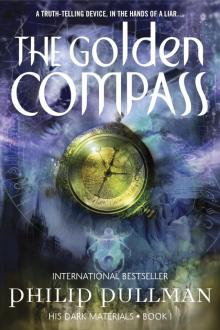 The Golden Compass
The Golden Compass The Ruby in the Smoke
The Ruby in the Smoke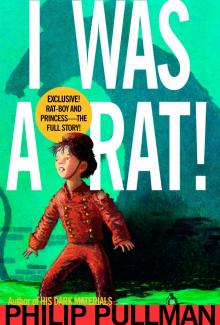 I Was a Rat!
I Was a Rat!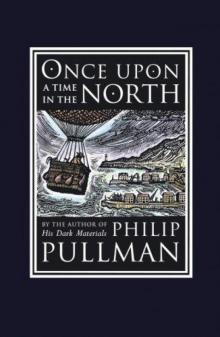 Once Upon a Time in the North
Once Upon a Time in the North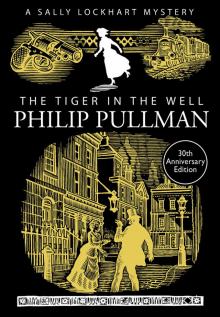 The Tiger in the Well
The Tiger in the Well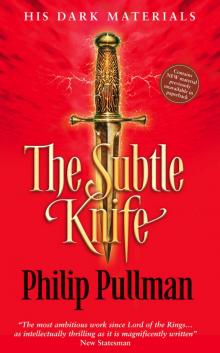 The Subtle Knife
The Subtle Knife The Butterfly Tattoo
The Butterfly Tattoo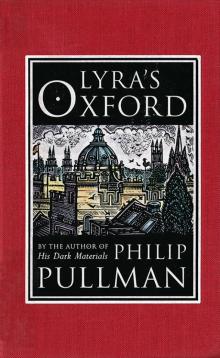 Lyra's Oxford
Lyra's Oxford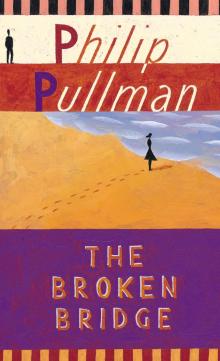 The Broken Bridge
The Broken Bridge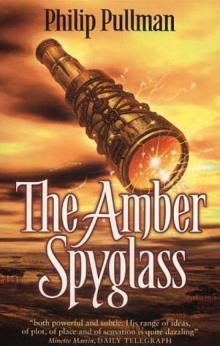 The Amber Spyglass
The Amber Spyglass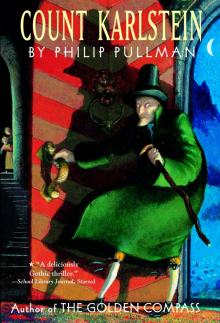 Count Karlstein
Count Karlstein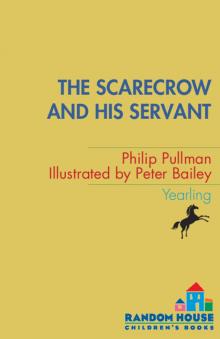 The Scarecrow and His Servant
The Scarecrow and His Servant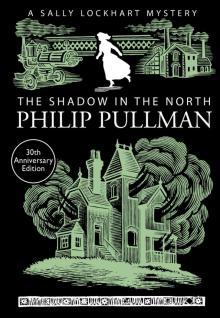 The Shadow in the North
The Shadow in the North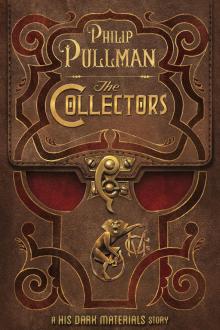 The Collectors
The Collectors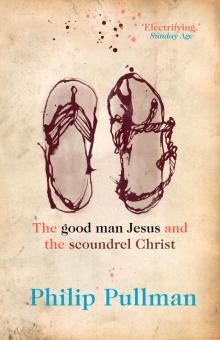 The Good Man Jesus and the Scoundrel Christ
The Good Man Jesus and the Scoundrel Christ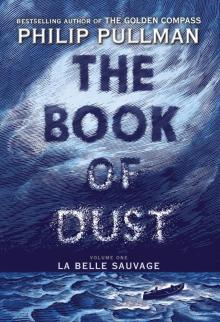 La Belle Sauvage
La Belle Sauvage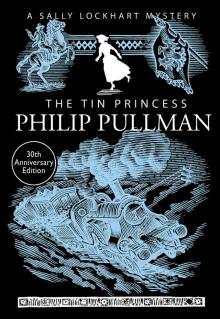 The Tin Princess
The Tin Princess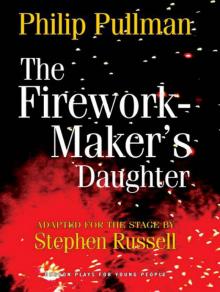 The Firework-Maker's Daughter
The Firework-Maker's Daughter The Book of Dust: The Secret Commonwealth (Book of Dust, Volume 2)
The Book of Dust: The Secret Commonwealth (Book of Dust, Volume 2)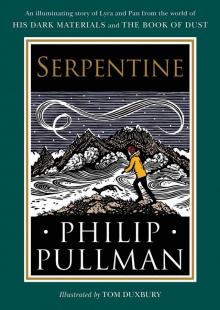 Serpentine
Serpentine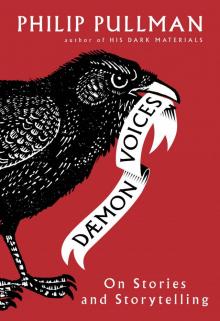 Daemon Voices
Daemon Voices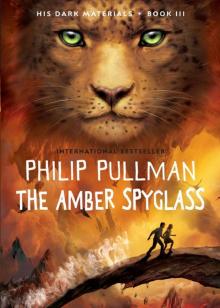 The Amber Spyglass: His Dark Materials
The Amber Spyglass: His Dark Materials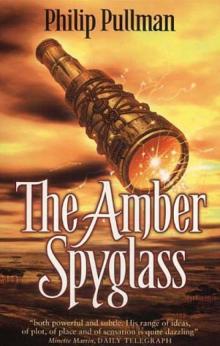 The Amber Spyglass hdm-3
The Amber Spyglass hdm-3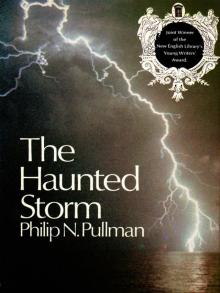 The Haunted Storm
The Haunted Storm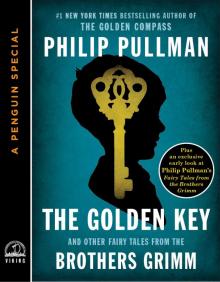 The Golden Key
The Golden Key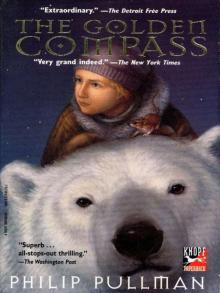 His Dark Materials 01 - The Golden Compass
His Dark Materials 01 - The Golden Compass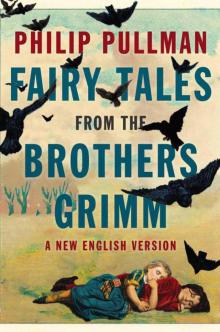 Fairy Tales from the Brothers Grimm: A New English Version
Fairy Tales from the Brothers Grimm: A New English Version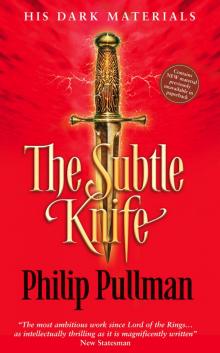 His Dark Materials 02 - The Subtle Knife
His Dark Materials 02 - The Subtle Knife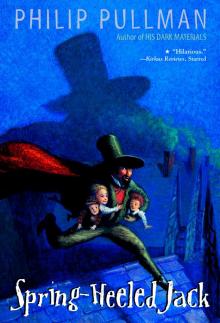 Spring-Heeled Jack
Spring-Heeled Jack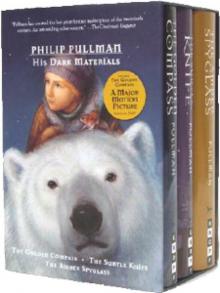 The Golden Compass hdm-1
The Golden Compass hdm-1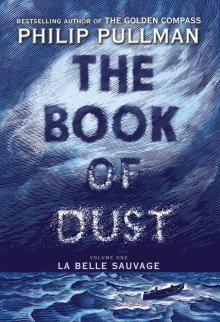 The Book of Dust, Volume 1
The Book of Dust, Volume 1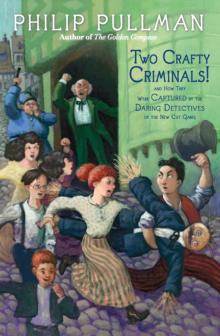 Two Crafty Criminals!
Two Crafty Criminals!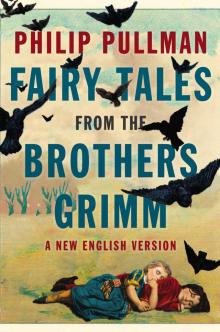 Fairy Tales from the Brothers Grimm
Fairy Tales from the Brothers Grimm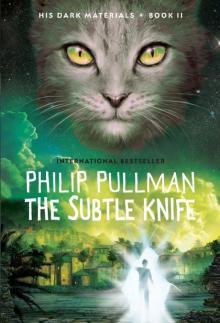 The Subtle Knife: His Dark Materials
The Subtle Knife: His Dark Materials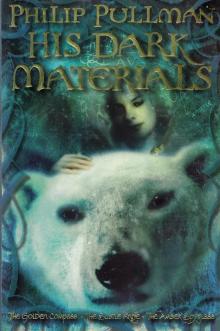 His Dark Materials Omnibus
His Dark Materials Omnibus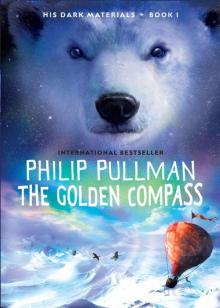 The Golden Compass: His Dark Materials
The Golden Compass: His Dark Materials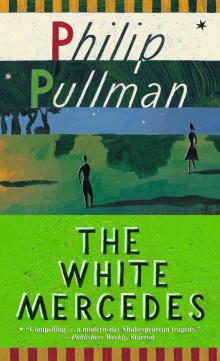 The White Mercedes
The White Mercedes